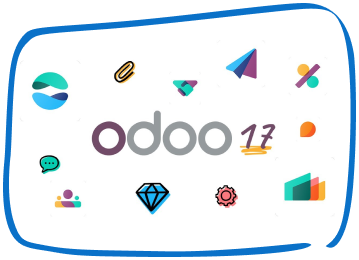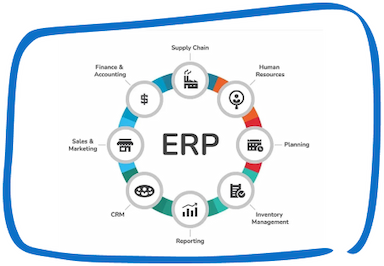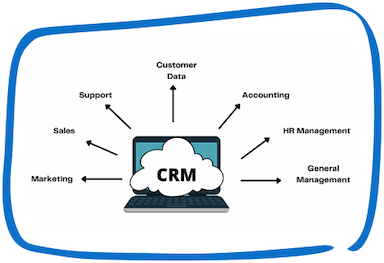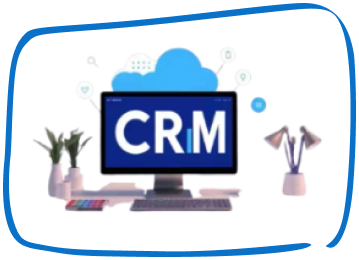Enterprise Resource Planning (ERP) software is designed to streamline business operations and make them more efficient. It does this by bringing together all aspects of a business into one unified system, including financial management, inventory management, human resources, and customer relationship management. While some people associate ERP with large corporations, there are many options available that are designed specifically for small businesses. In this article, we will explore the benefits of ERP software for small businesses and discuss some of the key features to look for when choosing a solution.
Benefits of ERP software for small businesses
There are many benefits to implementing an ERP system for small businesses. Some of these benefits include:
Improved efficiency:
ERP software automates many business processes, including invoicing, purchasing, and inventory management. This reduces the amount of time and resources required to complete these tasks, freeing up staff to focus on more strategic activities.
Better visibility:
With an ERP system, all key data and information are stored in one place. This provides small business owners with a more comprehensive view of their operations, helping them identify areas of inefficiency and improve overall performance.
Increased accuracy:
ERP software eliminates the need for manual data entry, reducing the risk of human error. This leads to more accurate financial records, inventory management, and other critical business processes.
Enhanced customer service:
With centralized customer data and communication, small businesses can provide a more personalized service to their customers.
Better decision-making:
ERP software provides real-time data and analytics, enabling small business owners to make more informed decisions about inventory management, pricing strategies, and other critical business decisions.
Key features to look for in ERP software for small businesses
When selecting an ERP solution for your small business, there are several key features to look for:
Scalability:
Choose an ERP solution that can grow with your business, so you do not have to switch to a new system as you expand.
Customization:
Small businesses have unique needs and requirements, so it is essential to choose an ERP solution that can be tailored to your specific needs.
Integration
Choose an ERP solution that can integrate with other business applications and systems, such as CRM, eCommerce, and accounting software.
Ease of use:
ERP software can be complex, so choose a solution that is easy to use and requires minimal training.
Security:
Ensure the ERP solution you select has robust security features to protect your sensitive data and prevent unauthorized access.
Mobile compatibility:
Choose an ERP solution that is compatible with mobile devices, so you can access your data and manage your operations from anywhere.
Cost:
Consider the cost of the ERP solution and whether it provides value for money. Many ERP solutions offer a range of pricing options, from monthly subscriptions to one-time fees, so choose the one that best suits your budget and needs.
Top ERP software solutions for small businesses
Odoo:
Odoo is a cloud-based ERP solution that offers a range of modules for different business functions, such as accounting, inventory management, and HR. It is highly customizable and has a user-friendly interface, making it a popular choice for small businesses.
ERPNext
ERPNext is an open-source ERP solution that is designed to streamline business operations and increase efficiency. It includes modules for accounting, inventory management, HR, project management, and more. ERPNext is highly customizable, allowing businesses to tailor the software to their specific needs. It is also cloud-based, making it easy to access from anywhere with an internet connection. ERPNext includes features such as document management, task management, and real-time analytics to help businesses make informed decisions. Additionally, it is affordable, with pricing options based on the number of users and modules required. Overall, ERPNext is a comprehensive and flexible ERP solution for small and medium-sized businesses.
Elate ERP
Elate ERP is a cloud-based ERP solution designed for small and medium-sized businesses. It includes modules for financial management, inventory management, procurement, sales, and customer relationship management. Elate ERP offers a user-friendly interface and is highly customizable to meet the unique needs of each business. It also includes features such as real-time analytics, customizable reporting, and integration with other business applications and systems. Elate ERP is designed to help businesses increase efficiency, reduce costs, and make informed decisions. Overall, Elate ERP is a comprehensive and flexible solution that can help businesses streamline their operations and improve performance.
NetSuite:
NetSuite is a cloud-based ERP solution designed for small and medium-sized businesses. It offers modules for financial management, sales and customer management, purchasing and inventory management, project management, and HR. It also includes reporting and analytics capabilities and integrates with other business applications and systems.
SAP Business One:
SAP Business One is an affordable ERP solution designed for small businesses. It offers modules for financial management, sales and customer management, purchasing and inventory management, production planning, and project management. It also includes real-time analytics and reporting to help small businesses make informed decisions.
Speak with Our Team!
4.9 Stars
1k+ reviews on






